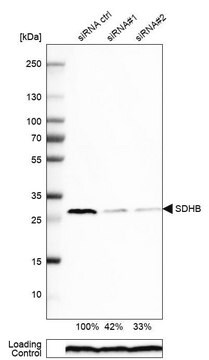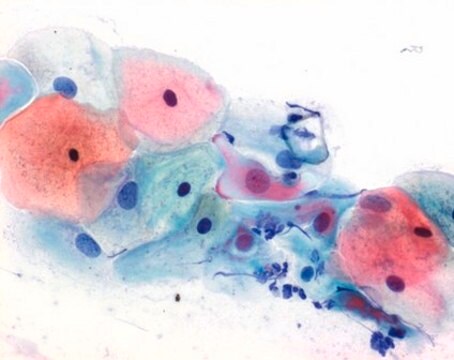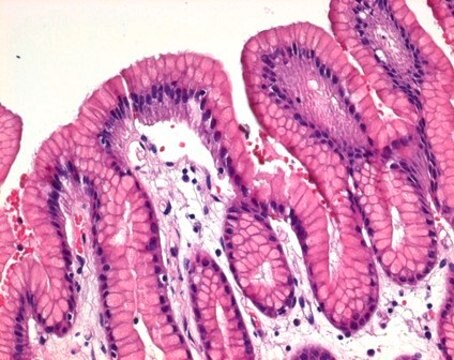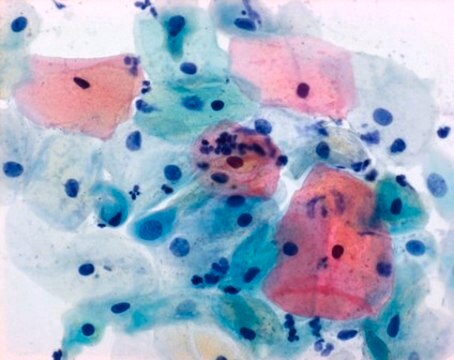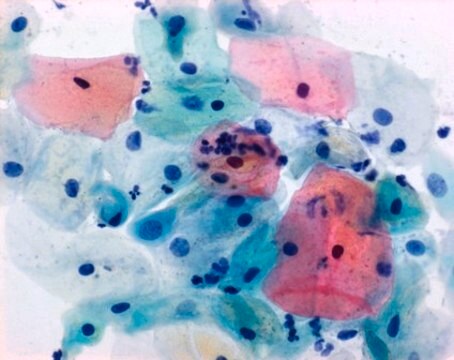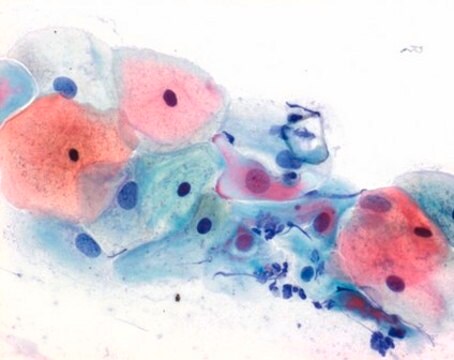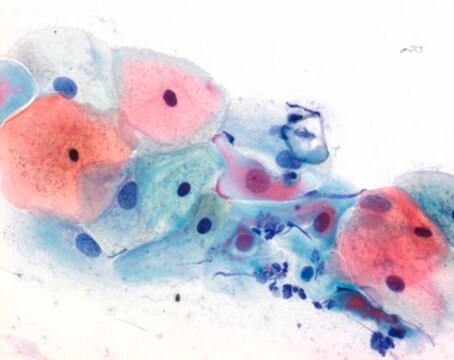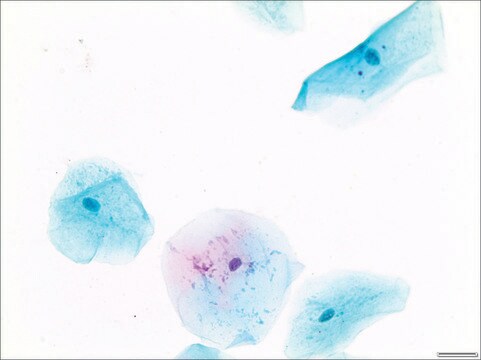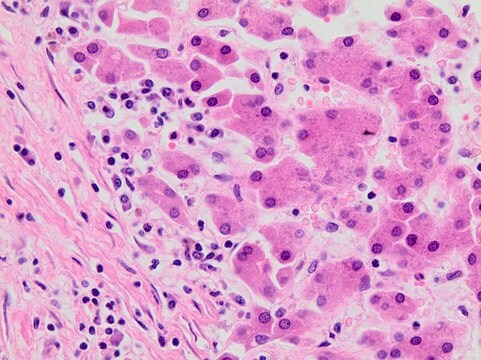1.09270
Papanicolaou′s solution 3c Polychromatic solution EA 65
for cytology
Autenticatiper visualizzare i prezzi riservati alla tua organizzazione & contrattuali
About This Item
Codice UNSPSC:
41116113
NACRES:
NA.77
Prodotti consigliati
Livello qualitativo
Forma fisica
liquid
IVD
for in vitro diagnostic use
pH
5.8 (20 °C in H2O)
Temp. transizione
flash point 15 °C
Densità
0.82 g/cm3 at 20 °C
applicazioni
clinical testing
diagnostic assay manufacturing
hematology
histology
Temperatura di conservazione
15-25°C
Descrizione generale
Papanicolaou′s solution 3c polychromatic solution EA 65 - for cytology, is a ready-to-use solution used for human-medical cell diagnosis and serve the purpose of the cytological investigation of sample material of human origin, for example, gynecological and clinico-cytological specimen materials. Papanicolaou′s technique is the most used staining procedure for cytological specimen is and is intended for the the staining of exfoliative cells in cytological specimens. In the first step, the cell nuclei are stained either progressively or regressively with a hematoxylin solution, (Papanicolaou′s solution 1a Harris hematoxylin solution, (Product number 1.09253) and Papanicolaou′s solution 1b Hematoxylin solution S, (Product number 1.09254)). Nuclei are stained blue to dark violet. In the progressive hematoxylin staining method, staining is carried out to the endpoint, after which the slide is blued in tapwater. With the regressive method the material is over-stained and the excess of staining solution is removed by acid rinsing steps, followed by the bluing step. The structures of nuclei are more differentiated and better visible by the regressive method. The second staining step is cytoplasmic staining by orange staining solution (Papanicolaou′s solution 2b Orange II solution, Product number 1.106887 or Papanicolaou′s solution 2a Orange G solution (OG6), Product number 1.06888), especially for demonstration of mature and keratinized cells. The target structures are stained orange in different intensities. In the third staining step is used the so-called polychrome solution, a mixture of eosin, light green SF and Bismarck brown, (Papanicolaou′s solution 3a polychromatic solution EA 31, (Product number 1.09271), Papanicolaou′s solution 3b polychromatic solution EA 50, (Product number 1.09272), Papanicolaou′s solution 3c polychromatic solution EA 65 (Product number 1.09270), o Papanicolaou′s solution 3d polychromatic solution EA 65, (Product number 1.09269). The polychrome solution is used for demonstration of differentiation of squamous cells. The Papanicolaou′s solution 3c polychromatic solution EA 65 will result in a staining with a light-brown to red staining result.
The 100 ml bottle provides 300 - 400 stainings. This product is registered as IVD and CE marked. For more details, please see instructions for use (IFU). The IFU can be downloaded from this webpage.
The 100 ml bottle provides 300 - 400 stainings. This product is registered as IVD and CE marked. For more details, please see instructions for use (IFU). The IFU can be downloaded from this webpage.
Applicazioni
Cytoplasm staining esp. for non-gynecological specimen, color effect light red
Risultati analitici
Suitability for microscopy (Vaginal smear)passes testNucleiblue to dark violetCytoplasmred
Avvertenze
Danger
Indicazioni di pericolo
Consigli di prudenza
Classi di pericolo
Eye Irrit. 2 - Flam. Liq. 2 - Skin Sens. 1
Codice della classe di stoccaggio
3 - Flammable liquids
Classe di pericolosità dell'acqua (WGK)
WGK 2
Punto d’infiammabilità (°F)
59.0 °F
Punto d’infiammabilità (°C)
15 °C
Certificati d'analisi (COA)
Cerca il Certificati d'analisi (COA) digitando il numero di lotto/batch corrispondente. I numeri di lotto o di batch sono stampati sull'etichetta dei prodotti dopo la parola ‘Lotto’ o ‘Batch’.
Possiedi già questo prodotto?
I documenti relativi ai prodotti acquistati recentemente sono disponibili nell’Archivio dei documenti.
Il team dei nostri ricercatori vanta grande esperienza in tutte le aree della ricerca quali Life Science, scienza dei materiali, sintesi chimica, cromatografia, discipline analitiche, ecc..
Contatta l'Assistenza Tecnica.
